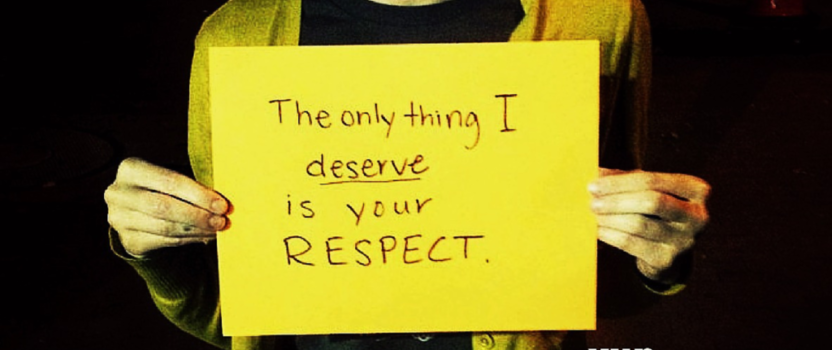Why I Don’t Care to SlutWalk
Editor’s Note: The below is an opinion piece.
The big feminist debate over the past few past months has been: to slut walk or not to slut walk. There have been opinion pieces on all major feminist outlets, alternative media and even some mainstream outlets showcasing differing opinions of what these SlutWalks mean to the larger discourse of sexual assault, empowerment, safety, and, let’s face it, fashion. What started as a comment by a police officer in Toronto has spun into a larger, what SlutWalk organizers consider, a movement.
Leaving the word “movement” alone, because I question organizations self-proclaiming their works as movements, when the likelihood is that smaller organizations and community activists have been working on similar issues in collaboration or on an individual basis for decades and didn’t consider themselves as a movement, the name of these rallies “SlutWalk” doesn’t bother me. It’s not that I’m pro-slut or anti-slut. It’s another way to make a march “sexy” and “hot” and “unique.” Granted, it gets young women and the media behind the rally, but to what degree are we watering down something that should be held at a higher discourse? And, truth be told, sexual assault is neither hot, sexy, or unique. Neither is public sexual harassment, even if one of the speakers of SlutWalk DC believes it may be due to what a person wears:
“If I’m wearing thigh highs and a short skirt, I’m inviting somebody to look at me. And I’m probably inviting some catcalls. But that doesn’t mean I’m inviting somebody to have sex with me against my will,’ said Erin Sherrange, 30, of McLean, who’s scheduled to speak Saturday.”
This every day harassment on the streets, in our bookstores, restaurants, or walking through a park is not based on what people wear. Rather, the harassment is happening for a wide variety of reasons—mostly related to the theories of power and control. I harasser, want to control this space, harasee. I, harasser, want to control you, harasee. I, harasser, want to make you feel good when I stare at you, harasee. I, harasser, don’t understand why you ignore me, harasee. I, harasser, am going to curse at you now because you didn’t give me [fill in the blanks] which I wanted, harasee.
Public sexual harassment is complex. It’s not simply based on clothing or being a female sometimes. There are so many reasons why women and LGBTQ individuals face this type of exchange every single day in Washington, DC (the real, non-Mall places of DC).
And, as one of the only pro bono sexual assault civil attorneys in DC, I have yet to hear an MPD officer blame a survivor’s sexual assault on her clothing. I’m positive it happens. It has to happen. But, most of the comments I hear second hand from my clients or others who were present during the police questioning, are around judgment based on alcohol and/or drugs. There is a lot of “hmmming” if the victim was drinking and/or using recreational drugs, or if s/he was drugged. Again, not EVERY officer pauses, but it is a frequent enough complaint that I think MPD should have consistent trainings on working with sexual assault victims, particularly around these issues. I wish this march was related to things actually happening in our systemic oppression of women and LGBTQ survivors of sexual assault here in DC. Does a march change the policies at MPD, the minds of rapists, men and women who don’t get it, jurors, prosecutors who don’t “have enough evidence”?
I don’t think so.
Much like Take Back the Nights, what this march does is gather people together, and preach to the same choir. I’m tired of that. I want more community involvement, more accountability, and more of these marchers and the organizers of these marches to take time off from work or school and sit in court rooms and hold judges and juries accountable. I want the choir to attend hearings at universities and colleges demanding change. I want these individuals to donate their money to organizations who have been doing this work of anti-victim blaming/anti-violence work for years.
What we need are marches in our own backyard. We need to have dialogue with our community not at them about sexual assault and harassment. We need to engage harassers and ask them why they harasser. We need more safety in our community so lesbians can be lesbians without being attacked. What we need is to talk to youth and ask them how is harassment affecting them. We see this as a problem that needs to go beyond the normal discourse of clothing, semantics, and superficial victim-blaming. We need a higher discourse looking to dismantle and equalize power and control by individuals, communities, agencies, and the system. As we shouted earlier this year, these are our streets, too!

